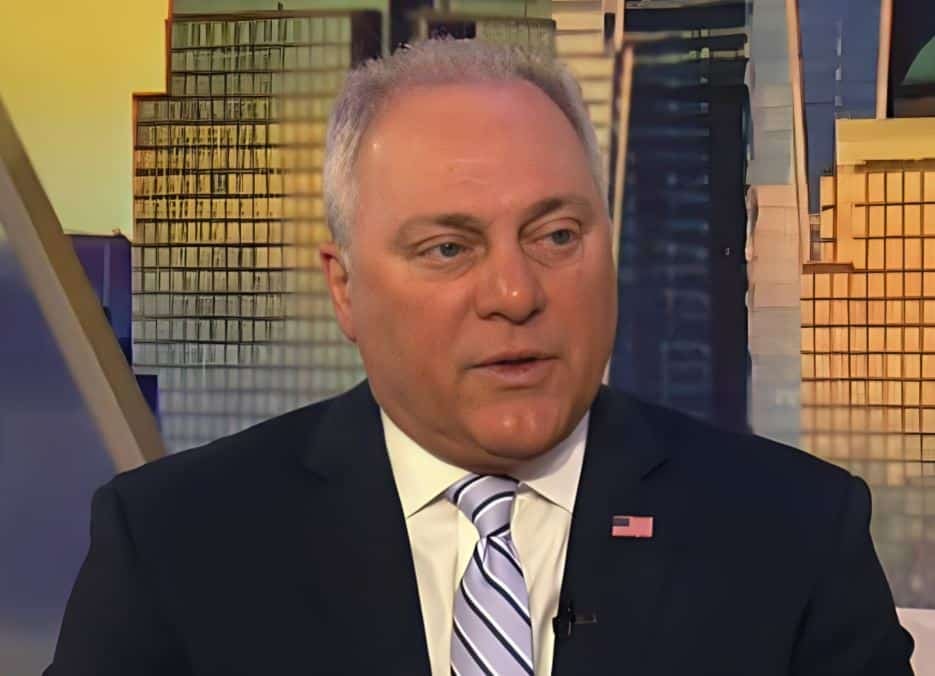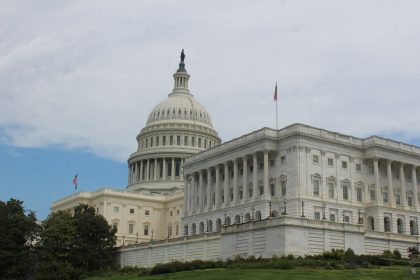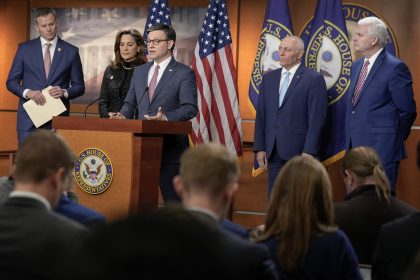House Republicans Roll Out Massive Energy and Permitting Overhaul

WASHINGTON — After weeks of introducing “messaging” resolutions aimed at pleasing the party’s hardcore base of so-called “MAGA Republicans,” the House GOP this week is rolling out its first major piece of legislation.
Called H.R. 1 — the Lower Energy Costs Act, the bill introduced by House Majority Leader Steve Scalise, R-La., on Tuesday is a compilation of separate pieces of legislation that sponsors say would increase fossil fuel production, dramatically trim the permitting process for all forms of energy projects ranging from wind and solar farms to oil fields and natural gas pipelines, boost production and processing of critical minerals, and, in a swipe at the White House, “reverse the anti-energy policies advanced by the Biden administration.”
“For the last two years, President Biden and his extremist friends in Washington have waged a war on American energy, and hard-working families across the country are paying the price,” Scalise said in a written statement that accompanied his introduction of the bill.
“Voters gave Republicans the majority in Congress to stop this radical anti-American energy agenda, and to take action that will lower prices. … With [the] introduction of the Lower Energy Costs Act, we will show the country how to end the war on American energy, become energy independent again, and lower costs for hard-working families,” he said.
The bill, which is expected to reach the House floor by the end of the month, has virtually no chance of passage in the Senate in its present form, but it does represent the GOP’s starting point for negotiations.
Joining Scalise as cosponsors are Reps. Cathy McMorris Rodgers, R-Wash., chair of the House Energy and Commerce Committee; Bruce Westerman, R-Ark., chair of the House Natural Resources Committee; and Sam Graves, R-Mo., chair of the House Transportation and Infrastructure Committee.
House Speaker Kevin McCarthy, R-Calif., said the energy bill was assigned the number one to signal how important the legislation is to the party.
“The Lower Energy Costs Act … is going to do two big things,” McCarthy said in a written statement. “One, it’s going to restore American energy leadership. How? By repealing onerous taxes and overregulation on American energy producers so we can lead the world in providing clean, affordable energy.
“Two, it’s going to make it easier to build stuff in America,” he said. “Every time we need a pipeline, road, or dam, an average of almost five years and millions of dollars in costs get added to the project to comply with Washington’s permitting process. That’s too long. And we can streamline permitting and still protect the environment. That’s a goal worthy of the number one.”
In an appearance on Fox Business Network’s “Mornings with Maria” program, Scalise cited Biden’s recent change of heart on the D.C. city council’s attempted rewrite of its criminal code as reason to be optimistic about the ultimate fate of the Lower Energy Costs Act.
In the case of the crime bill, the Democratic-controlled Senate approved a GOP-led resolution to overrule the city council’s rewrite of the criminal code for the nation’s capital, and Biden stunned many congressional Democrats when he announced he would not veto the measure.
The measure cleared the Senate 81-14. Democrats, even Senate Majority Leader Chuck Schumer, D-N.Y., voted to approve it. Last month, 31 House Democrats voted with all Republicans to pass the measure.
“So we’ve seen other examples of this,” he said. “But it starts with passing in the House and having a full debate.
“In two weeks, this bill is going to be on the House floor. You’ve got the Energy and Commerce Committee, Natural Resources, and Transportation Committee all involved in putting this package together and it’s going to show the country how we can be energy independent, even though a lot of Biden administration officials, like his own Energy secretary, have no idea how to do this,” Scalise said.
“We’re going to show the country how it can be done better than anywhere else in the world, and then let the country get involved,” he added.
Host Maria Bartiromo then asked Scalise if Biden’s then-pending approval of ConocoPhillips’ controversial Willow Project, which will now start drilling for crude oil at three sites inside the National Petroleum Reserve in Alaska, was a sign the administration has already begun to “pivot” in terms of its energy policy.
“I haven’t seen a pivot,” Scalise said. “They may have scaled it down some. But at the end of the day, you’re not seeing consistency in permitting, or in leasing. And so what that means is a lot of investments going overseas for long-term projects. And [President] Biden even in his State of the Union, indicated maybe just 10 more years we’re going to need oil.
“We’re going to need all sources of energy. Let’s advance wind and solar. They’re surely not ready for primetime today. They’re going to continue to develop, but we’re going to need oil, natural gas. We’re going to need nuclear power. Why is [President] Biden shutting all of that down?” the House majority leader said.
So far, House Democrats have been silent on the proposal.
However, business groups are already lining up behind the bill.
“We applaud Leader Scalise. … This bill would advance important policies to improve the permitting process, ensure strong domestic energy production, protect energy exports and increase production and processing of our own critical minerals,” said Marty Durbin, president of the U.S. Chamber of Commerce’s Global Energy Institute.
Dan can be reached at [email protected] and at https://twitter.com/DanMcCue
























